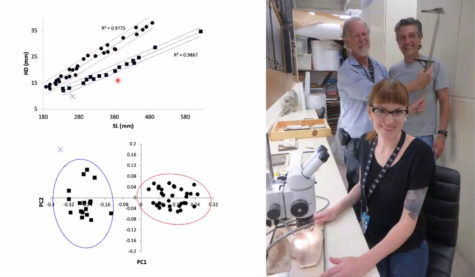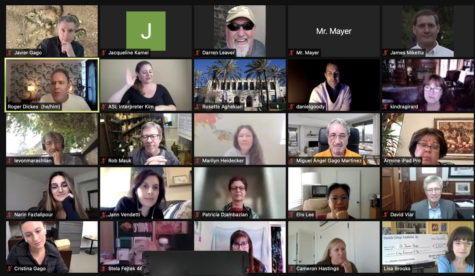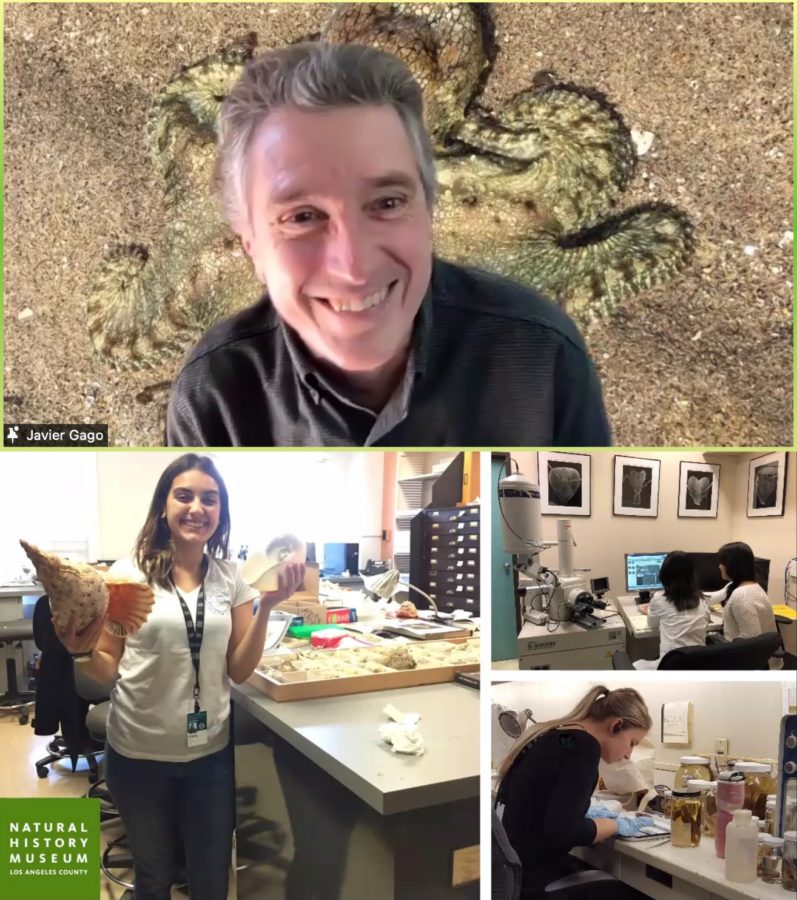Dr. Javier Gago Delivers an Inspirational Lecture Upon Receiving the Leonard DeGrassi Distinguished Faculty Award
Presentation attended by approximately 135 Glendale Community College administrators, faculty, classified staff, and students, and recipient’s family
“Many biologists believe we are in the beginning or already in the middle of a sixth extinction […] and there is no doubt that the causes are ecological stressors by humans,” said Dr. Javier Gago to 135 participants who witnessed him receiving the prestigious Leonard DeGrassi Distinguished Faculty Award on Sept. 30. The afternoon event was held by Glendale Community College’s (GCC) Distinguished Faculty Award Committee over Zoom where Dr. Gago presented his lecture, “Biophilia and the Importance of Biodiversity.”
Last year was the first year since 1989 that a recipient was not selected for the Leonard DeGrassi Distinguished Faculty Award (DFA), but this year, the award was presented through Zoom. The event was well-attended with dignitaries from the college, such as the Board of Trustees President, Dr. Armine Hacopian, and President of the College, Dr. David Viar, GCC’s administrators, faculty, classified staff, and students, and Dr. Gago’s family members.

Dr. Gago’s talk covered topics such as variation in life, speciation, measures of biodiversity, biomagnification, snail neurotoxins, the importance of mangrove forests and coral reefs, mass extinctions, and the ethics of bringing back extinct species. He particularly emphasized the implications of human practices on the climate and biodiversity. The biology professor also discussed how factors such as drastic changes in temperature, sea level, and oceanic oxygen levels have contributed to extinction. He connected mass extinctions to a variety of harmful human practices including “overfishing, habitat fragmentation, introduction of invasive species, and, of course, climate change both oceanic and atmospheric.”
This year’s DFA recipient further pointed out how disturbances in biodiversity would affect human life as he said, “We know that when biodiversity is lost, the environment has a harder time recovering from disturbances. It is more difficult to maintain water quality, and the capacity to produce food for humans also decreases.”

During Dr. Gago’s presentation, he explained the importance of students learning in the field as he discussed the Baja California Field Studies Program that he co-directs. “I would say that the best way to teach our students about biodiversity is really to take them into the field,” he said. Especially with today’s climate of living through social media, the Baja California Field Studies Program allows students to explore the natural world using a hands-on approach. Dr. Gago added, “So you take these students who are glued to their cell phones … or in the city all day, and you put them here, and they get to see the beauty of biodiversity … and they get to swim with one of the most impressive species alive today.” Dr. Gago also described previous experiences where students swam with whale sharks and took photos of dolphins using a camera underwater.
In addition to taking students to Baja, California, Dr. Gago mentioned how he researches with students as a research associate at the Natural History Museum of Los Angeles County. He discussed how students have been fortunate enough to study fossils of extinct organisms at the museum that are millions of years old. He provided a specific example of a paper he and a student published together in 2005 about a new species of lantern fish. During the lecture, he conveyed how they identified this new species using anatomical traits.
Toward the end of the presentation, the Executive Director of the Glendale College Foundation, Lisa Brooks, presented Dr. Gago’s $1,000 recipient check with a bit of a twist. “So Glendale College Foundation was pleased to present Dr. Gago with this $1,000 check, but instead of putting it in his bank account, he turned around and donated it to the Baja Program,” said Brooks.
To learn more about the Baja Program, please visit: https://www.glendale.edu/academics/special-programs/baja-program
To see the names of previous Leonard DeGrassi Distinguished Faculty Award winners, please refer to: https://www.glendale.edu/about-gcc/faculty-and-staff/employee-recognitions/distinguished-faculty-award-dr-william-l-parker-exceptional-service-award/recipients-list
Jacqueline Kamei can be reached at [email protected].


